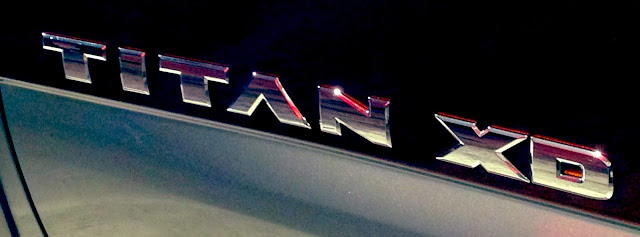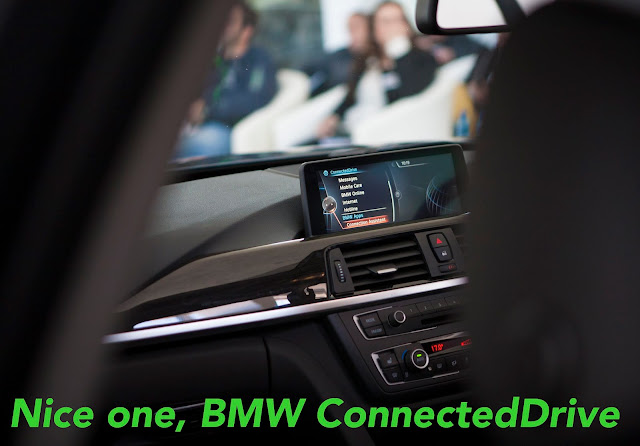200 km + 2 events + haircut + a massive interview for my column = 11:30pm I’m home.
Tomorrow is the actual auto show day, so have to cut this short since I have to be back downtown and camera ready pretty early.
Driving some of those kilometres.
Okay first stop is the 2015 Alfa Romeo 4C Spider unveiling.
Which I had to leave before the cloth came off. to make it to my interview on time. I didn’t document the boardroom, it didn’t seem appropriate but kinda regretting it now, a photo would go good here.
ingenie, coming soon to Canada – plug the device into your OBDII port, and get performance-based insurance discounts by using a safe driving style. I secured one of the few interviews about it, and they’re putting together a review unit for me try, too; neat eh.
Okay interview done, now off to the 2015 Nissan Titan reveal.
Designed by two Canadians!
Best part about these events are always the people.
The auto journalist crowd is genuinely hilarious, and I never have to dumb-down my vocabulary which is refreshing. Plus they always give me a hard time in the best way, “quick Keri, get this up on your blooooooog.”
You know those guys, Team Autonet! David Miller on the left, and Dan Barron on the right.
I’ll take more photos at the show tomorrow… probably. Whipping out your camera to document a moment completely kills it, so I err on the side of nope.
Arty rearview mirror shot.
And now it’s passed midnight, and I just realized I left a bunch of stuff freezing in the back seat so going to get that then fall on my face, TTYT







